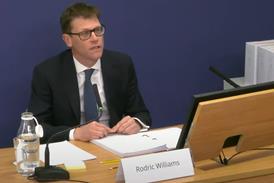An experienced solicitor who knowingly continued in practice when he was not authorised to do so has been struck off the roll.
Colin Kenneth Grooms, who practised under his own name in Norfolk, was supposed to be winding down his firm at the end of 2017 after both his practising certificate and professional indemnity insurance expired.
But the Solicitors Disciplinary Tribunal heard that he continued to practise until at least the end of March 2018 and took on at least one new matter in that time.
The tribunal ruled that Grooms, admitted in 1993, was an experienced solicitor who would have known what he required in order to be able to practise. He continued to engage in litigation on behalf of existing and new clients, as evidenced by the fact he was billing them for this work, and he made no attempt to notify the Solicitors Regulation Authority that his retirement plans had changed.
His conduct in continuing to practise without authorisation ‘was done knowingly and was not an oversight or a simple error’. The tribunal found Grooms, who did not attend last month’s hearing, had acted dishonestly.
Grooms had told the tribunal he was running down the business but did not have the £3,000 required to pay for run-off insurance cover. He had contacted most of his clients, by letter or telephone, to inform them of the situation and ensure they were not left high and dry. He denied being dishonest.
Grooms was also alleged to have failed to co-operate with the legal ombudsman in an open manner. A former client had complained to his firm in 2016 but received no reply, so she complained to the ombudsman.
Grooms failed to reply to two letters from the complaints handler, which led to him being reported to the SRA. It was heard the regulator tried five separate times to contact him after that. Grooms said he had ‘no idea’ what the ombudsman wanted as he had been focused on closing down his firm.
The tribunal said it was no defence to refuse to engage with the ombudsman on the basis the firm was preparing to close.
Grooms was also ordered to pay more than £10,500 in SRA costs.

















![David Lester (senior partner at Blythe Liggins), Darryl Barnes, Jagdeep Sandher (head of dispute resolution at Blythe Liggins)[4]](https://d1d8vslyhr7rdg.cloudfront.net/Pictures/274x183/4/2/8/116428_davidlesterseniorpartneratblytheligginsdarrylbarnesjagdeepsandherheadofdisputeresolutionatblytheliggins4_981603_crop.jpg)








